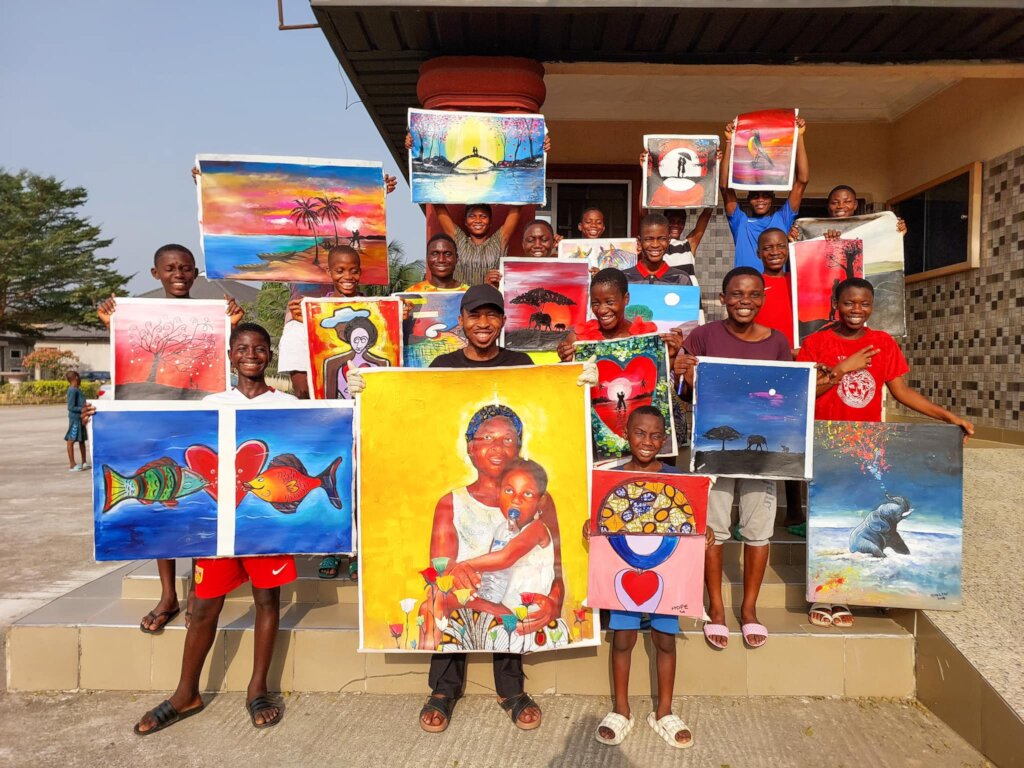
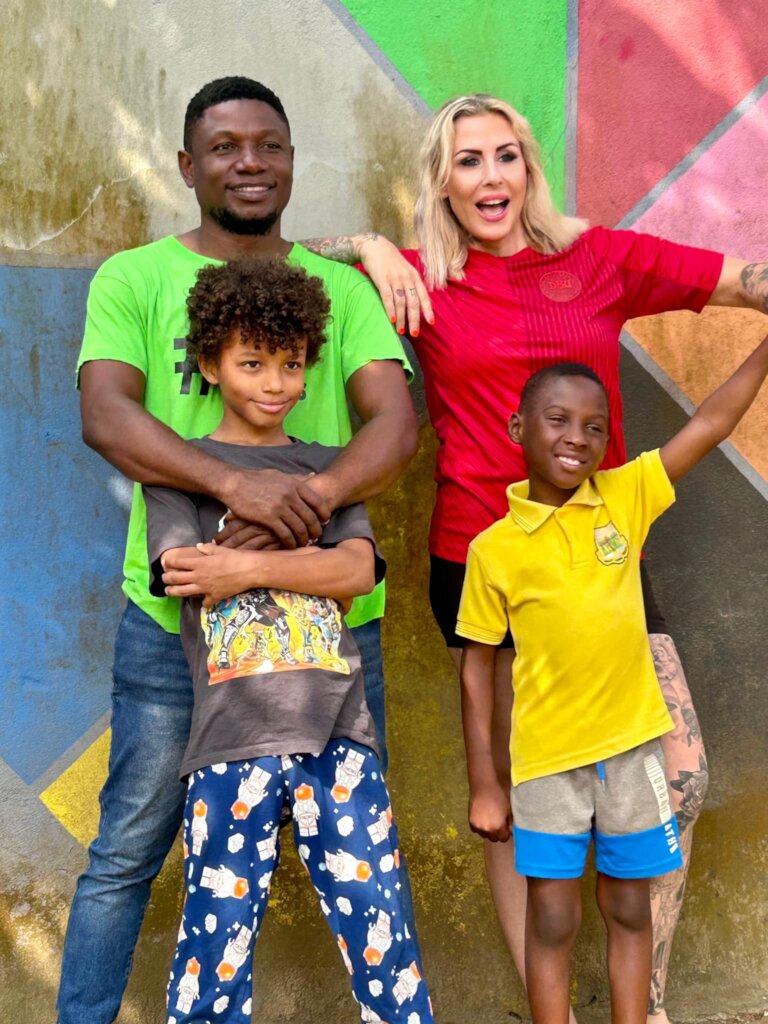
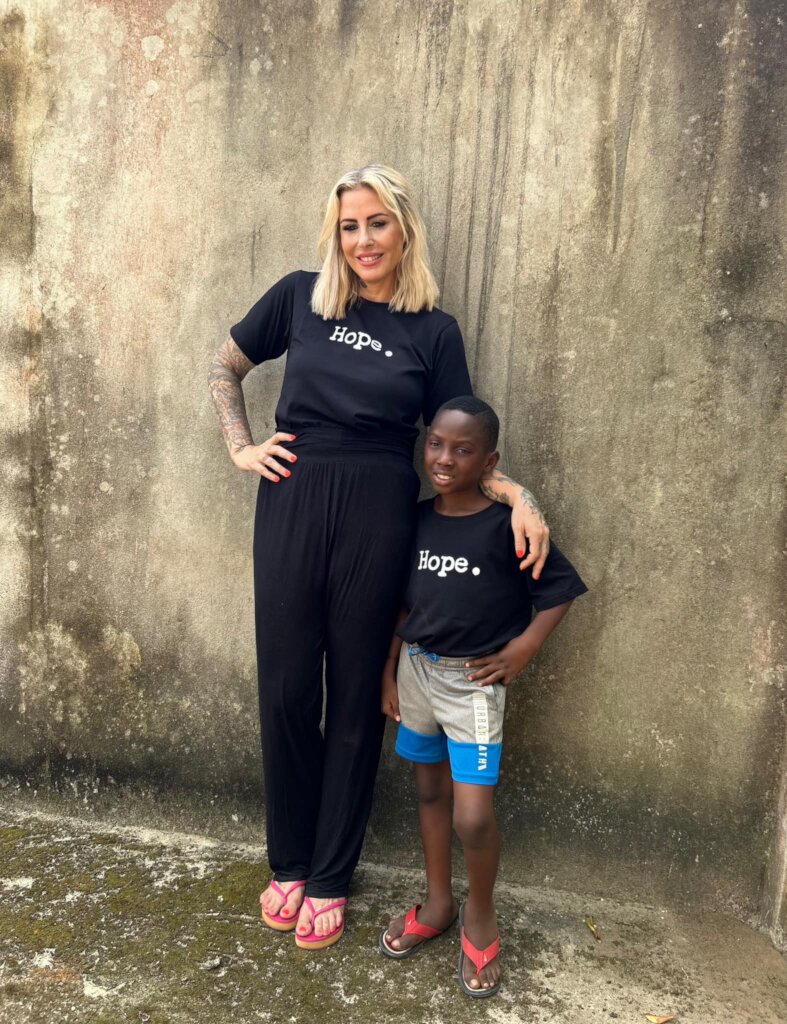
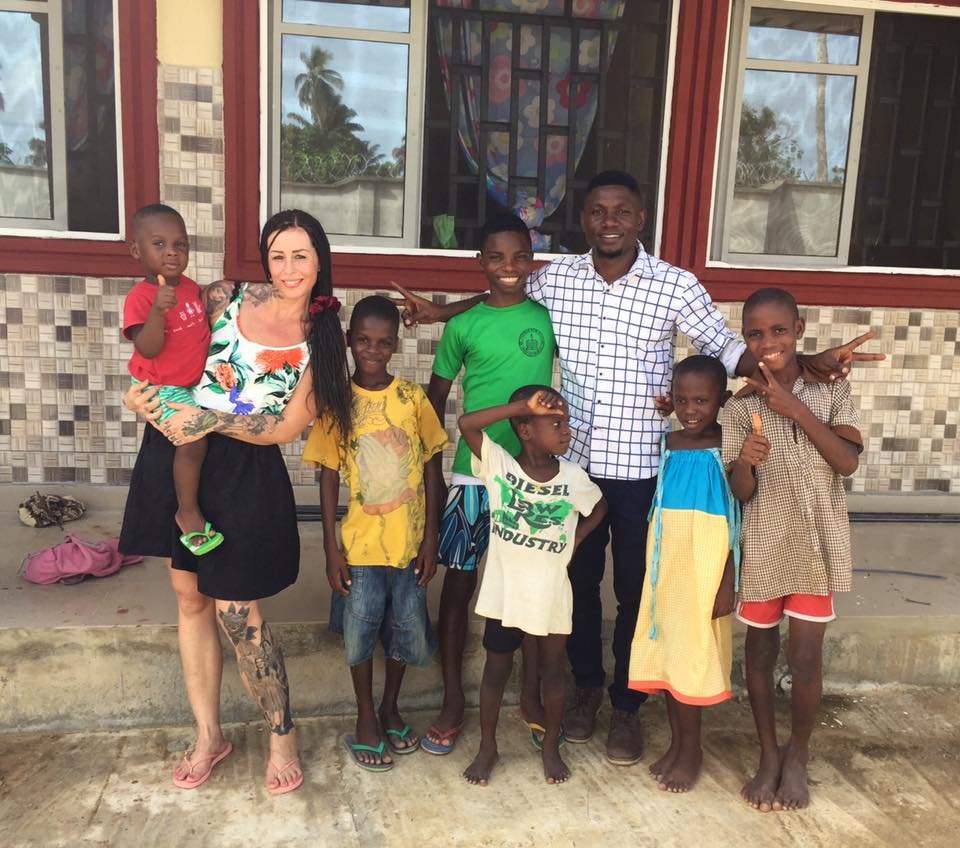
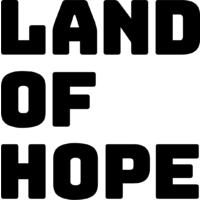
We save innocent children, accused of witchcraft, from exclusion, torture and death. With care, protection and education for the children and by educating their surrounding communities, we lay the foundation for a future, where children grow up to be independent, active and social individuals who contribute to the development of their community. INFORMATION CAMPAIGNS AS THE CATALYSTS OF DEVELOPMENT During the last decade, accusations of witchcraft made against Nigerian children have risen alarmingly, especially in the state of Akwa Ibom, where Land of Hope's children's centre is located. The cause of the rise in belief in witchcraft and black magic is a complex mixture of social, ... read more We save innocent children, accused of witchcraft, from exclusion, torture and death. With care, protection and education for the children and by educating their surrounding communities, we lay the foundation for a future, where children grow up to be independent, active and social individuals who contribute to the development of their community. INFORMATION CAMPAIGNS AS THE CATALYSTS OF DEVELOPMENT During the last decade, accusations of witchcraft made against Nigerian children have risen alarmingly, especially in the state of Akwa Ibom, where Land of Hope's children's centre is located. The cause of the rise in belief in witchcraft and black magic is a complex mixture of social, economic and religious factors. If we are to combat superstition, we have to tackle the root of the problem, and that lies in the impoverished villages in which Land of Hope runs its information campaigns. Land of Hope works on the conviction that education is of massive importance to the ability of future generations to build a just society. We believe that education is the most effective weapon in the battle against superstition. That's why we invest a lot of time on Advocacy Work in Nigerian, which simply means the spread of information. Advocacy is generally about speaking up on behalf of others to the local and national authorities, to bring them to account and live up to their responsibilities to the poorest groups in society. It's also about helping those groups, so that they know and understand their rights, and can demand that they are fulfilled. Our information campaigns are designed to enhance the process of development and progress in Nigeria that is so necessary to combat superstition. WHY CHILDREN ARE ACCUSED OF WITCHCRAFT The residents of the poorest areas of Akwa Ibom feel abandoned and marginalised by the government, which does nothing to educate and develop their communities. Schooling for the children is irregular, and superstition is deeply ingrained in African culture, which gives sustenance to jungle law, superstition and ignorance. Families look for an explanation for their poverty, or sudden death, and fear of evil and the supernatural can be so strong that it displaces love for a child, which can quickly be made into a scapegoat. Finally, many of the revivalist churches use superstition for exorcism, which they earn a lot of money for. Local priests are therefore responsible for the majority of witchcraft accusations against children in the state. INFORMATION ON CHILDREN'S RIGHTS When we visit such areas during our information campaigns, the first thing we seek to do is to create a platform for dialogue, in which we can talk about superstition, the importance of education and the rights of children. For example, few people here are aware that it is actually illegal to accuse a child of witchcraft, and can result in up to 15 years in prison. On the other hand, witchcraft accusations are not a problem the government concerns itself with, even though the Governor of Akwa Ibom made witchcraft accusation a criminal act with the introduction of the 'Child Rights Act' in 2003. There is therefore little help to be gained by pointing an accusing finger at the ignorant villagers, who have been left to their own devices for so long. They are uneducated, and are not even aware of their basic rights. That's why it is important that we also listen to their frustrations, and support their efforts to gain the attention of the government, which is ultimately responsible for generating progress in the areas affected. HOME VISITS An important part of our information campaigns is what we call 'home visits', taking the children to visit their own immediate family. Naturally, they miss their parents, brothers and sisters, and we believe that our most important task is to help them retain close relationships with them. Many people find it hard to understand why it makes sense to take these children back to the village where they were cast out, tortured and left to fend for themselves. But it's very rare that witchcraft accusations come directly from their own parents. When a child is accused of being a witch, the accusation usually comes from an uncle, grandparent, stepmother or -father, neighbours or a priest, who earns money from exorcisms. The children may see some of the people who drove them out, which can of course create insecurity, but our children are made of sterner stuff. We have found on many occasions that they have walked into their village with a spring in their step, confidence and a fierce look in their eye. It's fantastic to see, and their families are delighted to see their children again. INCREDIBLE TRANSFORMATION The objective of home visits is therefore to change the perception of the villages of superstition by showing them the incredible transformation these children have been through - from being cast out, alone, accused of being witches, almost tortured to death, to being healthy, strong, good in school with self-confidence and dreams for their future. We can convince the entire village this way that the children are not witches, and that their accusers have been indoctrinated by either the local priest or other villagers. The children are slowly but surely accepted by the local population when they see their incredible transformation. The seeds are sown for acceptance and reintegration into the local community, and several of our children therefore hold their school holidays with their families. The work is long-term, and requires that the children make regular home visits. Their families also often visit them at Land of Hope. It's also important that they take responsibility for the dreadful past the children have suffered, and work with us to enlighten their villages about the rights of children. A family bond is very strong in the African society, and even though superstition can seem to break that bond, it is usually due to poverty and ignorance, which can only be fought by expanding their knowledge of the world, teaching them about superstition and the importance of education.


Each of GlobalGiving’s nonprofit partners is required to send quarterly donor reports detailing the impact of their work. Here are some of their recent updates:
By Mette Thomsen | Project Leader
Dear donor, Every year, 15,000 children face unfathomable accusations of witchcraft. Many don't survive this accusation. We invite you to reflect on the rescues of Essien and Otuekong. While we are... Read the full report ›By Mette Thomsen | Project Leader
Dear donor,We're overjoyed that seven of our children, who've been with us for over a decade, have recently gone off to university. They were once abandoned and accused of being witches, but today,... Read the full report ›By Mette Thomsen | Project Leader
Dear donor, It's now the rainy season in Nigeria, which is challenging and dangerous due to massive destructive floods, thunderstorms, and lightning strikes. Many fatalities and fire outbreaks were... Read the full report ›